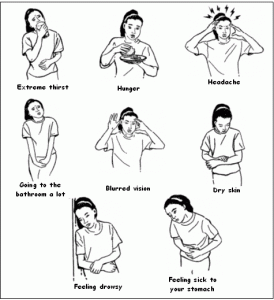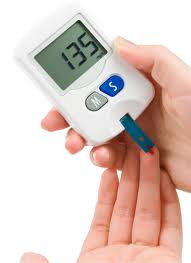Do you have high blood glucose symptoms?

What exactly are high blood glucose symptoms? High blood glucose symptoms happens when ones blood sugar is too high or generally over 120 – 140mg range. High blood glucose symptoms happens diabetics eat too much sugar causing the amount of sugar to not be consumed fast enough so it goes throughout the body but the body cannot digest it or consume it quick enough and can cause serious medical side effects such as dizziness, fatigue, rapid heart rate or frequent urination just to name a few.
High diabetes symptoms often times occur frequently within a diabetic especially if they are insulin dependent or are classified as a type II diabetic. High blood glucose causes can occur when a person eats foods that contain too much sugar in it or eats too many foods and meals that contain high amounts of sugar and the body cannot process it quick enough.
Low blood glucose symptoms occur when the blood sugar or the amount of sugar that the body makes and that a person consumes is not enough and the body and its organs are trying to find more glucose in order to function properly. Some of the symptoms that can result from low blood glucose levels are fainting, weakness, dizziness or lightheadedness and shaking just to name a few.
Often times high blood glucose symptoms and high blood pressure symptoms can be similar and even go untreated because they are mistaken. High blood pressure symptoms can come in the form of headaches, dizziness, weakness, fatigue, rapid heart rate and sweating.
If you are a diabetic the best measurement and precautionary measures that you can take for yourself and your health is to manage and watch your foods and sugar intake carefully. Always check your fasting sugar level as often as the doctor tells you too and all of this in combination will help you steer away from having high blood glucose symptoms.




